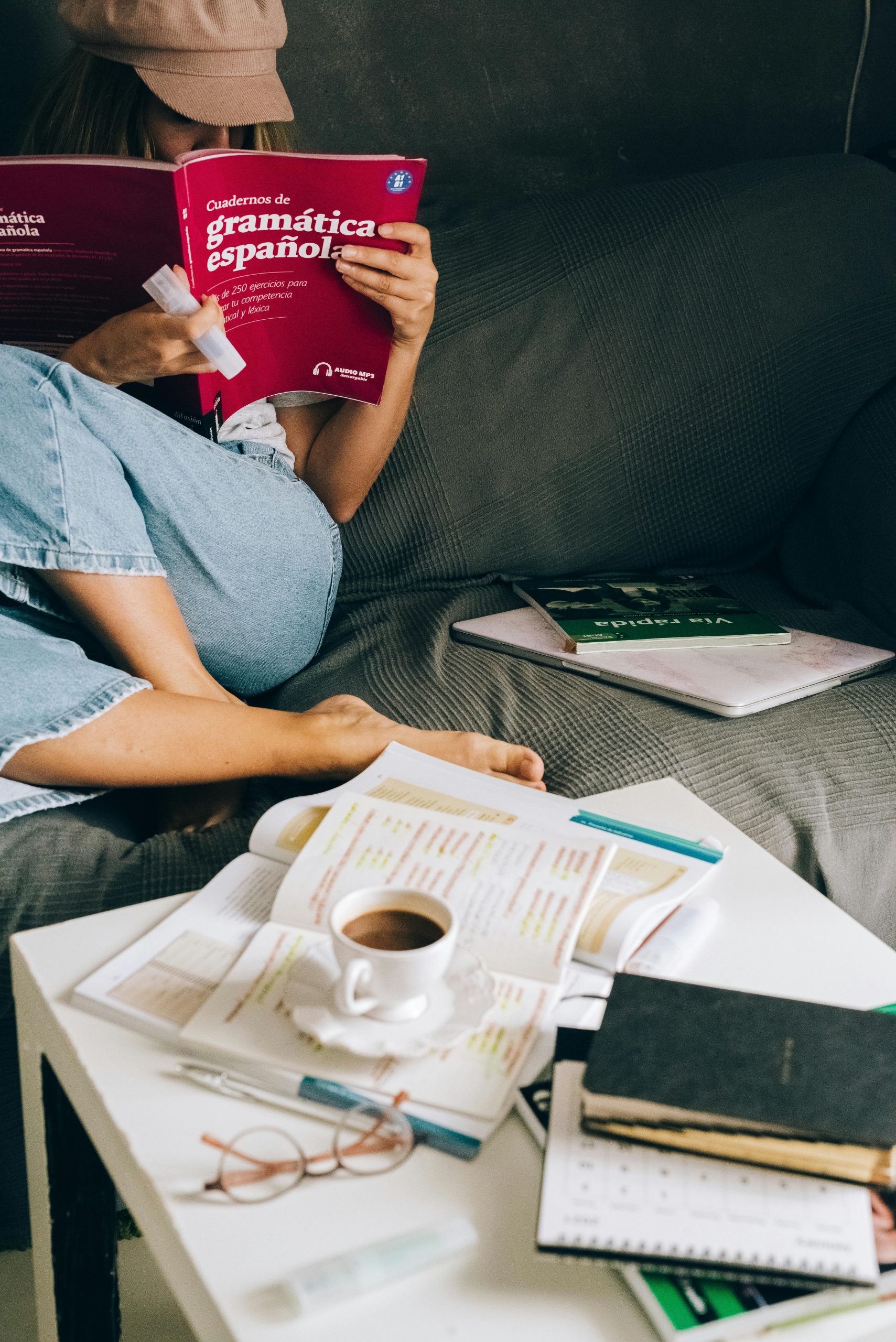5.11 Ein idealer Tag

Hallo allerseits!
Zum Aufwärmen machen wir unseren Tagesminiplausch und eine Wiederholung.
Wiederholung
In the previous lesson, you learned to describe your typical Monday tasks and your typical Saturday tasks. Let’s review what you have learned.
Read and listen to the text. Then complete the activity that follows.
 |
Am Samstag schlafe ich aus. Ich frühstücke um 12hr mit Freunden. Ich gehe um 13.30 ins Kino oder ich spiele Basketball. Ich muss nachmittags lernen. Ich muss um 17hr zur Arbeit gehen. Ich esse um 20hr zu Abend. Ich gehe um 23.30 ins Bett. |
Let’s practice with the text.
Imagine your German friend asks you the following questions. Would you answer ja or nein? Schäfst du am Samstag aus? Do you sleep in on Saturday? Gehst du am Samstag ins Kino? Do you go the movies on Saturday? Lernst du am Samstag? Do you study on Satuday? Practice ja or nein with each of these questions.
Lektionsüberblick
On very work-heavy days, we may often think of all of the things we would rather be doing. In this lesson, we will talk about our ideal day and what things we would plan for the day, if we had no obligations. In the end, you will be able to 1) say which things that you want to do, 2) say which things that you do not want to do, and 3) imagine your ideal day.
1) Ich will…
Wie sieht dein idealer Tag aus? What does your ideal day look like?
Was willst du machen? What do you want to do?
The German word for want is a false friend, meaning it looks just like an English word but it does not mean the same thing. This might take some getting used to. Read and listen to the comic below and then practice this useful word (and false friend).
 |
Let’s practice.
Kleiner Hinweis
The letter W in German is pronounced like the letter V in English, so will is pronounced like VIL.
Jetzt bist du dran!
2) Ich will nicht…
When thinking about your ideal day, it’s important to consider the things that are not on your list of ideal activities. Was willst du nicht machen? What do you NOT want to do? Read and listen to the comic below.

Let’s practice.
Jetzt bist du dran!
Stuttgart im Blickpunkt

Stuttgart 21 ist ein Verkehrs- und Städtebauprojekt zur Neuordnung des Eisenbahnknotens Stuttgart. Im Rahmen des Projekts entstehen elf neue, meist unterirdische Strecken (57 km) sowie vier neue Stationen, darunter ein neuer Hauptbahnhof. Das Projekt wurde 1994 erstmals der Öffentlichkeit vorgestellt. Die Bauarbeiten begannen im Februar 2010. Die Inbetriebnahme war zunächst für Dezember 2019 geplant, wurde danach aber mehrmals verschoben. Die Eröffnung für Fernverkehr und einen Teil des Regionalverkehrs ist nun im Dezember 2026 geplant, der weitere Teil des Regionalverkehrs soll bis Juli 2027 weiter im oberirdischen Teil des Hauptbahnhofs enden. Die offiziellen Kostenschätzungen des Projekts sind mehrmals gestiegen: von 2,6 Milliarden Euro bei Planungsbeginn auf über 11,4 Mrd. im Juni 2024.

Stuttgart 21 is a railway and urban development project to reorder the railroad hub in Stuttgart. Its core is a renewed Stuttgart Hauptbahnhof, among some 57 kilometres (35 miles) of new railways, and 10 other new stations which are primarily underground. The project was officially announced in 1994. Construction work began in February 2010. Operations had been expected to start in December 2019 but has been delayed repeatedly. Currently, operations for long-distance traffic and part of regional traffic plan to be opened in December 2026. The remainder plan to be opened in July 2027. The total cost estimates have repeatedly increased: from €2.6 billion during planning to over €11.4 billion in June 2024.
3) Mein idealer Tag
Read about Charlotte’s ideal day. Is it similar to yours?
 |
Ich will um 10 Uhr aufstehen.
Ich will um 10:30 mit Freunden frühstücken. Ich will um 12hr Siedler von Catan mit meinen Freunden spielen. Ich will um 15hr mit meinem kleinen Bruder ins Kino gehen. Ich will um 18hr mit meiner Familie zu Abend essen. Ich will um 20hr mit meinen Freunden zocken. Ich will um 22hr ausgehen. Ich will um 0hr ins Bett gehen. |
|
|
|
Jetzt bist du dran!
Zum Schluß
Now look at the pictures below. What would each of these people say they want to do on their perfect day? Build an “Ich will…” or “Ich will nicht…” sentence for each picture.
 |
 |
 |
 |

*As you conclude this lesson, don’t forget to check Canvas!*

Media Attributions
- 1010-1020 banner long large reduced
- pexels-rethaferguson-3061023
- 5.11 make-beliefs-comix-22 © This comic strip was generated at http://www.MakeBeliefsComix.com. Used by permission of author and site creator Bill Zimmerman.
- 5.11 make-beliefs-comix-23 © This comic strip was generated at http://www.MakeBeliefsComix.com. Used by permission of author and site creator Bill Zimmerman.
- Photo of woman waking up by pexels-olly-3807632
- Photo of person holding bike by pexels-fr3nks-2248713
- Photo of girl learning Spanish bypexels-leeloothefirst-5409045
- pexels-rickyrecap-1806765
- Photo of couple by pexels-cottonbro-4009401
- Private: confidence scale_large horizontal_updated

